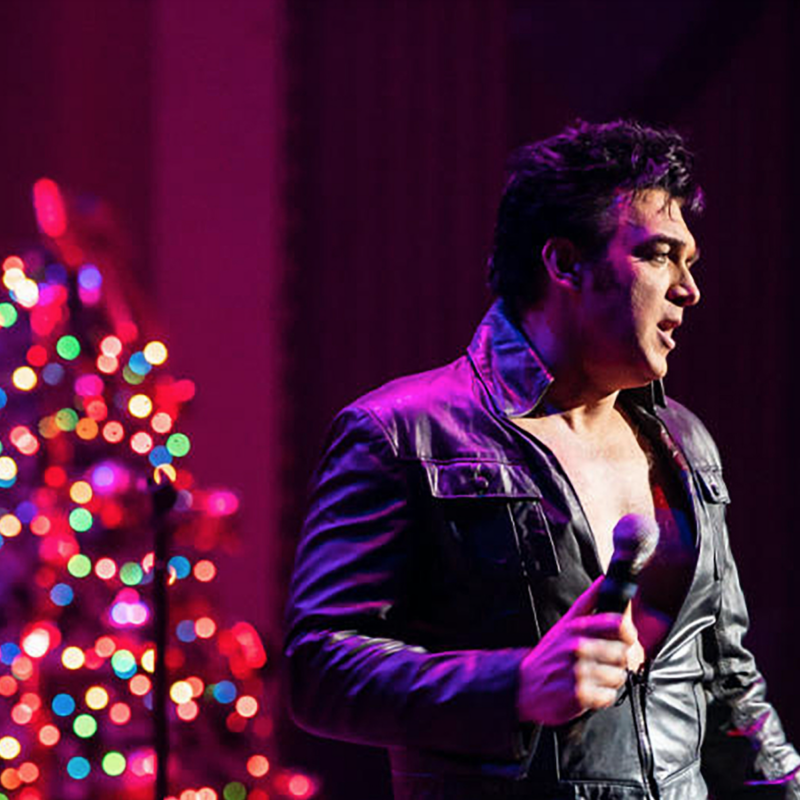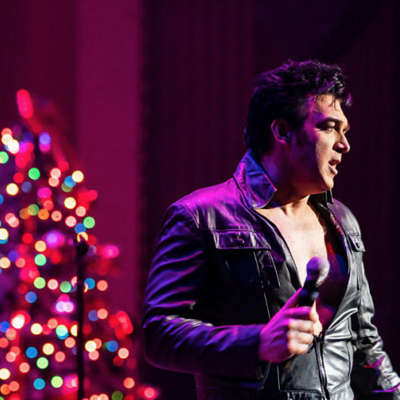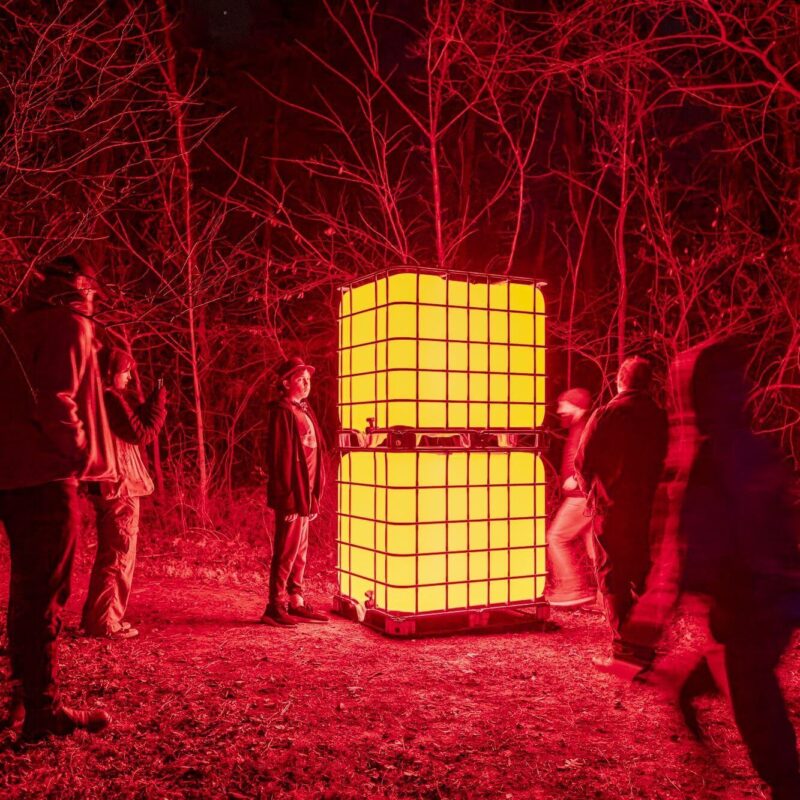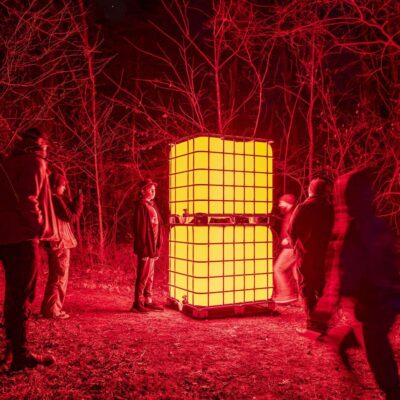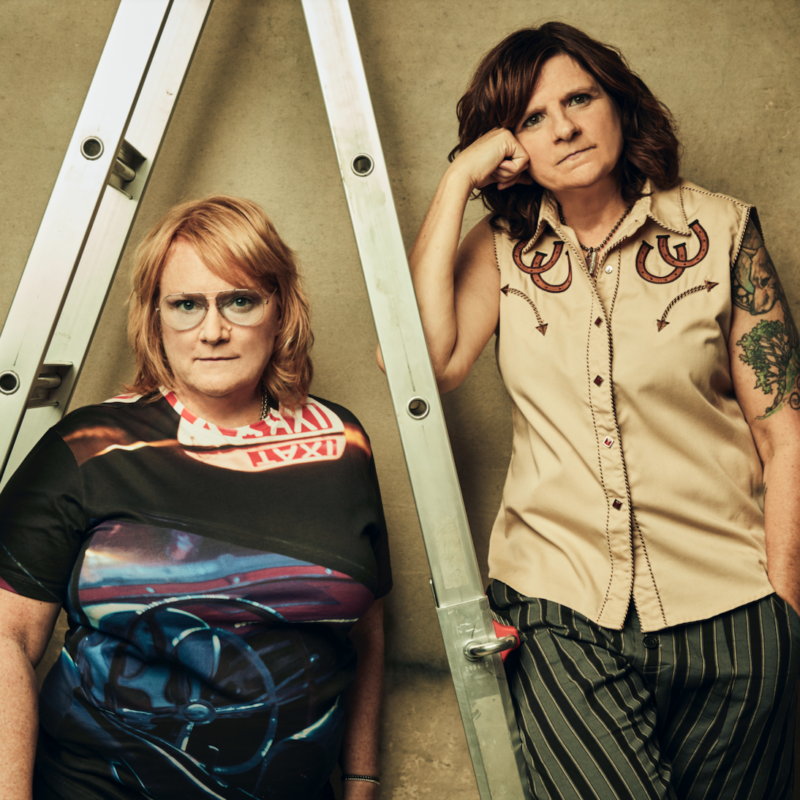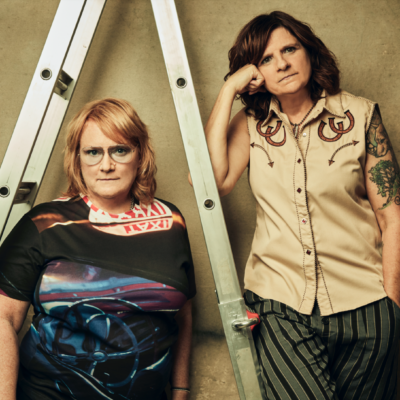Before the illicit weed smoking, before the bare boobs, before the overzealous ABC agents, before the revoked booze license, and before the appeal, there was a guy whose buddy showed him a pretty cool place to listen to tunes.
The guy was Dave Frey, who’s spent more than three decades making his career in the music biz by organizing events and managing bands. Growing up in Chicago, he made one of his biggest splashes in 1984 when he opened the renowned Vic Theater. Now at 54, he spends his time representing the Ramones and attending to Lockn’, the Central Virginia festival he and partner Peter Shapiro launched last year and have brought back with an even stronger lineup of bands.
“We just found a really awesome place to stage shows. We kind of came upon it by accident,” Frey said. “A friend of mine took me down there—a friend of his had gotten married there—and I loved it.”
What’s followed has been a test of music festival organizing mettle. The first year was a success in terms of ticket sales and consumer response, but the legal backlash from Lockn’s spat with the Virginia Department of Alcoholic Beverage Control has been a serious stumbling block. Frey said he anticipated Lockn’ would grow about 20 percent this year, but instead he’s looking at near identical ticket sales to year one—about 25,000.
“Last year was not profitable. We’re hoping to break even this year,” he said. “The thing is, we are going to start building this into its own thing where people trust us.”
Frey said it’s not uncommon to take your lumps in the first few years of major festival building, even without concerns over your liquor license and security measures costing you consumer confidence. He has his eye on the long game in an industry that’s paid major dividends to players that can hang on through the lean years. No, Frey doesn’t anticipate his festival will ever overtake Tennessee’s Bonnaroo, which attracts 70,000 fans in lean years, but he does think Lockn’ can double in size.
Proof of Frey’s confidence and commitment are the 385 acres adjoining the current concert venue that he and Shapiro recently purchased. For now, the new property won’t change much for the layout of the actual festival, but Frey said it will ease the flow of traffic into and out of the area. In the long run, it means Frey and Shapiro are invested in a concert venue and surrounding infrastructure that could be an ongoing revenue engine for Nelson County year after year.
The traffic improvements from the property are no small thing, according to Frey. Even in 2013, Lockn’ attracted a large number of out of state traffic, at about 65 percent of ticket sales. That number is forecast to be about the same this year. Plus, Frey said he expects the number of transient attendees, as opposed to overnight campers, to increase this year, meaning more traffic to deal with on a day-to-day basis. While the actual traffic plan is largely out of Lockn’s hands and up to the Virginia Department of Transportation, the added frontage space on Route 29 has allowed Frey and his team to widen the pinch point where attendees enter parking lots.
Frey, who’s run a handful of festivals over the past two decades, doesn’t necessarily think Lockn’ has become a bigger national draw this year, but he does agree the talent level has ticked up considerably. The addition of acts like Wilco and Tom Petty have stretched the festival to new audiences, and Frey has dialed in his tried-and-true booking strategies.
“The greatest thing about it is that we are pretty much putting on a show that we would like to see,” Frey said. “We don’t have three to five bands on three to five stages, we have one stage. So we like multiples, because bands can stretch out and cover all their material. You get two nights of Widespread, two nights of Wilco. That’s cool. I think that’s what brings people out for the whole weekend.”
Frey figures the growth of the festival circuit is in no danger of slowing down anytime soon, and he and Shapiro hope to continue to ride the wave. According to Frey, big summer festivals have become ideal for bands and music fans alike because they have filled the niche of the burst amphitheater bubble of the ’80s and ’90s.
“The amphitheaters were historically a gamechanger,” Frey said. “Suddenly bands said, ‘we are going to tour in the summer because there are these amphitheaters that are only open six months, and they pay better.’ But the circuit got too big and has been on the wane.”
Still, the demand remains for bands to hit the road at premium prices and satisfy fans that want to spend a weekend hearing tons of music for one fixed price. Fans that come to Lockn’ this year aren’t likely to be disappointed on that front.
“This is the best show I’ve ever booked,” Frey said. “I wish I could just go to the show and watch it and not have to run it now. This is going to set the standard for us for a long time to come.”
Share your festival stories in the comments section below.
